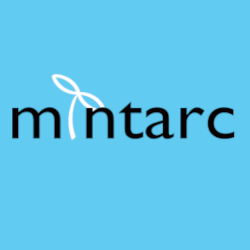OnionShare
From Mintarc Forge
OnionShare is an open-source tool designed for secure, anonymous file sharing, website hosting, and communication over the Tor network. Initially released in 2014, it has evolved into a versatile platform that prioritizes privacy and anonymity. By leveraging Tor's onion services, OnionShare ensures that users can share files, host websites, and chat without exposing their identities or relying on centralized servers. This makes it particularly valuable for journalists, activists, whistleblowers, and anyone operating in sensitive or high-risk environments.
OnionShare provides a decentralized and peer-to-peer framework for sharing files directly between users. When a user shares a file, OnionShare creates a temporary web server on their device and generates a unique .onion URL. This URL can be shared with recipients who access the files using the Tor Browser or another OnionShare instance. The files are never stored on third-party servers, ensuring complete control over data. Additionally, OnionShare supports unlimited file sizes, making it suitable for transferring large datasets.
By enabling "receive mode," users can turn their device into an anonymous dropbox where others can upload files securely without revealing their identities. This functionality is widely used by journalists and organizations that need to collect sensitive information from sources while maintaining strict confidentiality.
OnionShare also allows users to host static websites anonymously. Introduced in version 2.2, this feature enables individuals to create .onion websites directly from their devices without relying on external hosting providers. These websites are accessible only via the Tor network, ensuring both the content and visitors remain private.
In addition to file sharing and hosting, OnionShare includes an ephemeral chat feature for secure communication. Users can set up private chat rooms accessible only through a .onion address. These chats do not require accounts or logins and leave no trace of messages once the session ends. The chat feature relies on Tor's end-to-end encryption (E2EE) to protect conversations from eavesdropping.
OnionShare’s reliance on the Tor network ensures that all traffic is encrypted and anonymized by routing it through multiple relays before reaching its destination. This makes it nearly impossible for third parties to trace the origin or destination of shared files or hosted content. Additionally, the .onion URLs generated by OnionShare are ephemeral by default, meaning they cease to exist once the session ends or the user stops sharing.
For added security, users can configure OnionShare to require private keys (essentially passwords) for accessing shared files or websites. This ensures that even if an .onion URL is intercepted, unauthorized users cannot access the content without the corresponding key.
It does have limitations. For example, encryption relies entirely on Tor’s onion services rather than implementing additional layers of encryption within OnionShare itself. Users must also keep their OnionShare session active while sharing files or hosting websites; otherwise, access will be interrupted.
OnionShare is widely used in scenarios where privacy and anonymity are critical:
- Whistleblowing: Journalists use OnionShare to securely collect sensitive documents from anonymous sources.
- Activism: Human rights defenders rely on it to share information in regions with heavy surveillance or censorship.
- Secure Communication: Its anonymous chat rooms provide a safe space for discussions without leaving digital traces.
- Decentralized Hosting: Users can host temporary websites without needing traditional web hosting services.
Since its launch in 2014, OnionShare has undergone significant updates to expand its functionality and address security vulnerabilities. Version 2 introduced support for v3 onion services with stronger cryptographic protections and added features like macOS sandboxing and translations for broader accessibility. Version 2.3 brought enhancements such as tabbed interfaces for managing multiple sessions simultaneously and improvements to its command-line interface (CLI).
Security audits have been conducted to identify potential vulnerabilities in OnionShare’s codebase. For example, a 2021 audit funded by Open Tech Fund uncovered issues such as denial-of-service risks and HTML rendering vulnerabilities in earlier versions; these were promptly addressed in subsequent updates.
Yes OnionShare excels in privacy-focused use cases, it has some constraints:
- It requires users to keep their systems online during sharing or hosting sessions.
- File transfers depend on Tor's bandwidth limitations, which may affect performance.
- The platform does not encrypt filenames or metadata unless additional precautions are taken by users.
A tool for secure file sharing, anonymous communication, and decentralized hosting within the Tor ecosystem. Its commitment to privacy makes it indispensable for individuals operating under surveillance or censorship while offering practical solutions for everyday users seeking secure alternatives to mainstream platforms. By combining simplicity with robust anonymity features, OnionShare continues to be a vital resource for safeguarding digital freedom in an increasingly monitored world.
